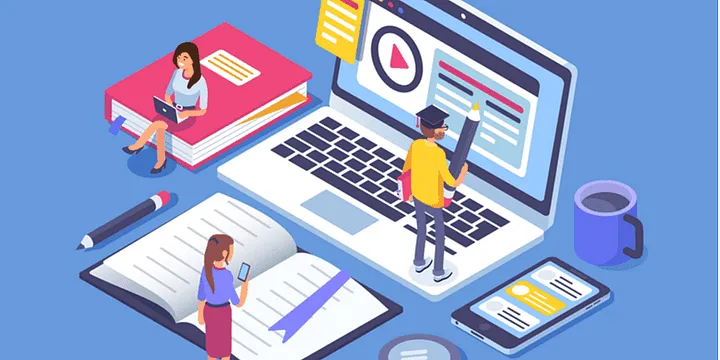Role of Artificial Intelligence in the rise of edtech
Artificial Intelligence (AI) has helped drive the growth of edtech by streamlining tasks as well as aiding personalisation of education to fit learners’ requirements.
Artificial Intelligence (AI) in education has been around for a while, typically doing tasks that require human intelligence. An early memory of AI would be adaptive testing where questions would get tougher and tougher as you kept on answering the right questions.
Over the last decade or so computing power has gained leaps and bounds and AI is also getting more evolved to play a larger role in education both for the teacher and learner. Today, Grammarly is a common tool used by many of us which uses AI with natural language processing (NLP) to produce recommendations.
One of the challenges for AI is that a large amount of data is required to run the solutions effectively. According to reports, the use of AI in education is expected to grow annually by 45 percent. The role of AI in the years to come will shape the education industry and the benefit will be for the learner.

Increasing efficiency
One of the basic implantations of AI has been to automate the “operational” activities of teachers. Most teachers spend more than 50 percent of their time on evaluating homework, grading tests, filing paperwork, making a progress report, organising materials and resources for classes, managing teaching materials, etc.
Artificial Intelligence can intervene in many of these tasks to efficiently manage them for the teacher, ensuring that the teacher has more time for higher-order tasks such as teaching & helping out students. This has obvious benefits for both learner and teachers.
Personalisation of classroom experience for the student is another “holy grail” problem that many are trying to solve and are solving. By taking various inputs from the students, platforms can assess the student and give recommendations, these are more like “intelligent tutoring systems” AI can adapt to each student’s level of knowledge, speed of learning, desired goals, analyse learning histories, and a lot of other parameters. This leads to the identification of weaknesses and also course recommendations for improvement, providing a highly personalized learning experience.
Globally, there is a lot of focus on building solutions with AI as the core technology. While the USA leads the development in terms of spending and investments, India ranks sixth (source: The Brookings Institution). We still have a long way to go to get more focus on building solutions in Edtech using Artificial Intelligence.
Artificial Intelligence startups have also made inroads in query resolution via chatbots or technology, where students can simply ask questions or upload a picture of the problem. The AI tools process the problem and churn out the solution. This allows bypassing the teachers and reliance on the same. Additionally, this allows learners a 24/7 platform for engagement, breaking down the time required to find the answers, and at the same time not breaking the learning process.
AI has also come in the form of universal learning where one can get real-time subtitles. This is a great help to those with a hearing impairment or speaking different languages. This helps students of various sections, including those who want to learn subjects, are not at school, or are sick and absent.
Personalised teaching
Another area where there is work going on is student-teacher matching. Getting a teacher who understands the student is very important to maximise learning. Imagine getting a teacher for a child weak in communication who explains concepts in a patient and methodical way so learners understand better.
Or even where AI gives inputs to teachers on where to spend more time and where to accelerate, thereby making learning outcomes better. Matching the right teacher to the learner has huge benefits in terms of learning outcomes.
Given the amount of focus on getting A.I. in the classroom and making the journey of the learner better, the next couple of years should see a high impact of this. While there are challenges around AI in terms of data collection to power up AI models and biases around the same, AI is here to stay.
Personalisation of the learner’s journey will be the most sought-after goal, and in the years to come, education could be driven a lot more by technology than it is today.
(Disclaimer: The views and opinions expressed in this article are those of the author and do not necessarily reflect the views of YourStory.)








